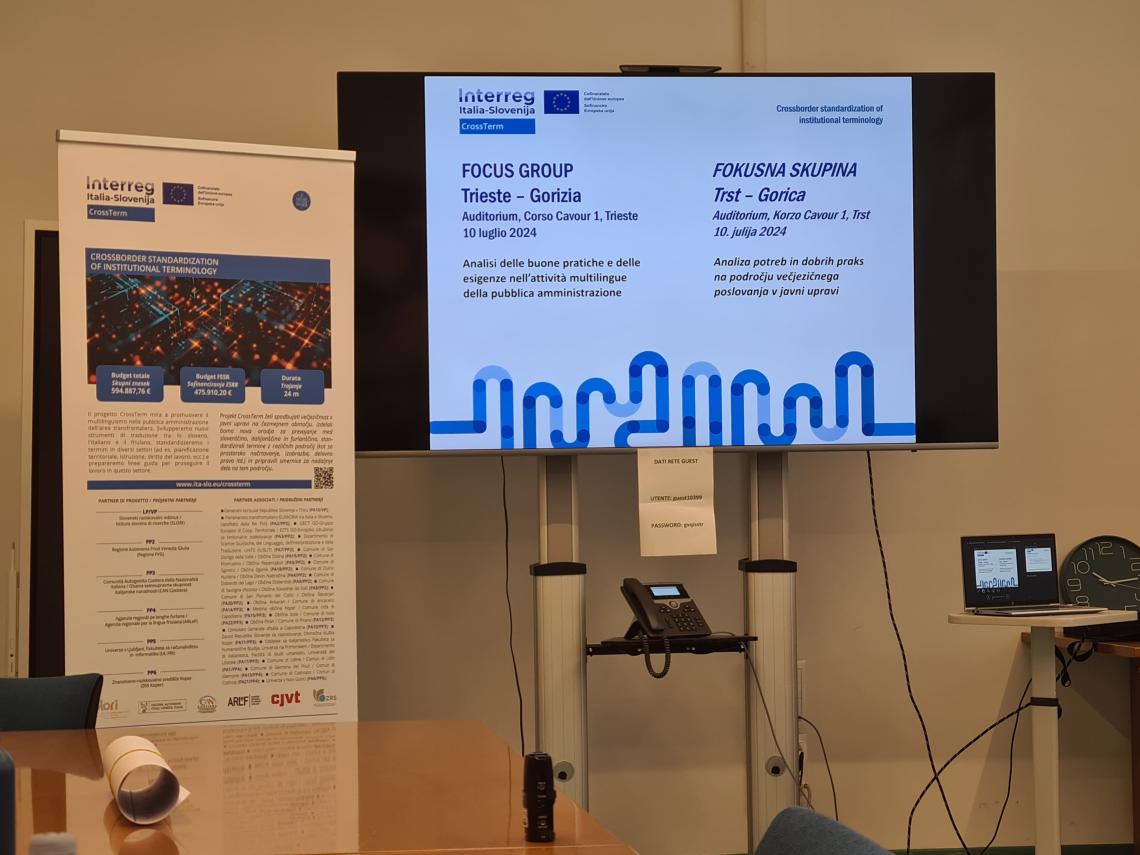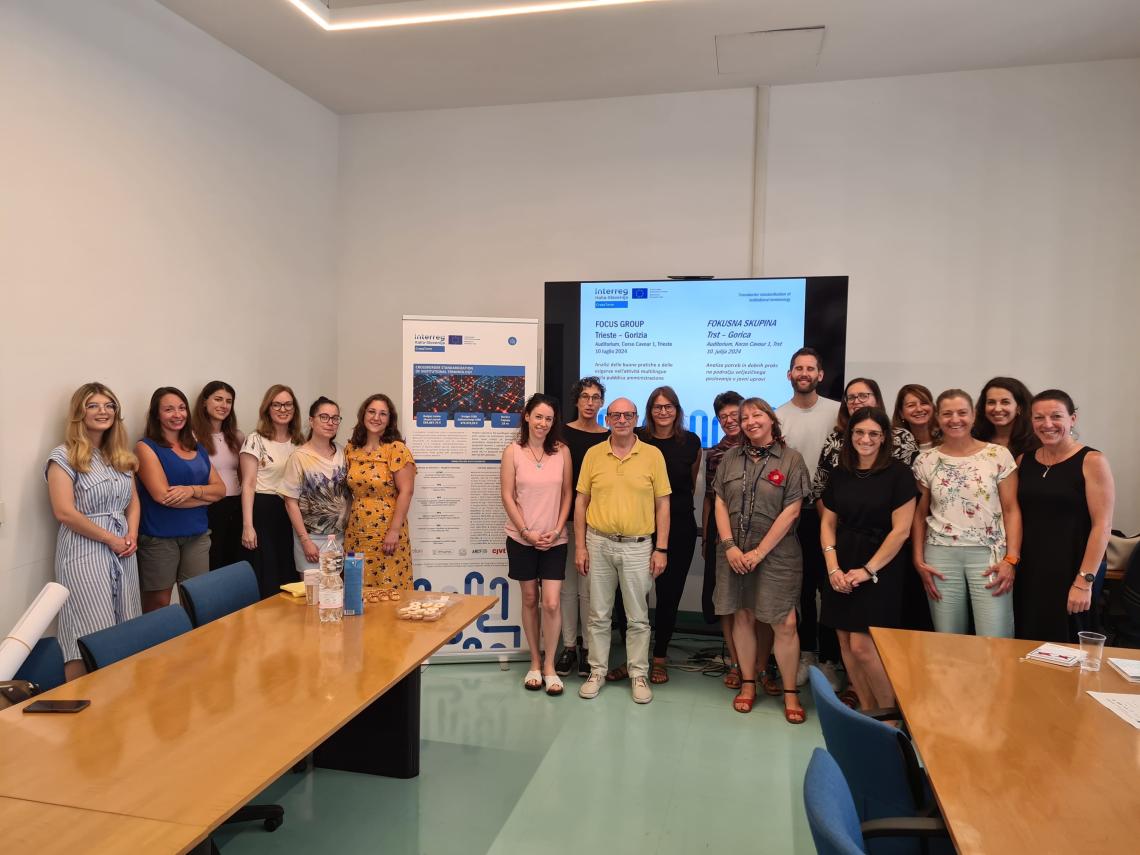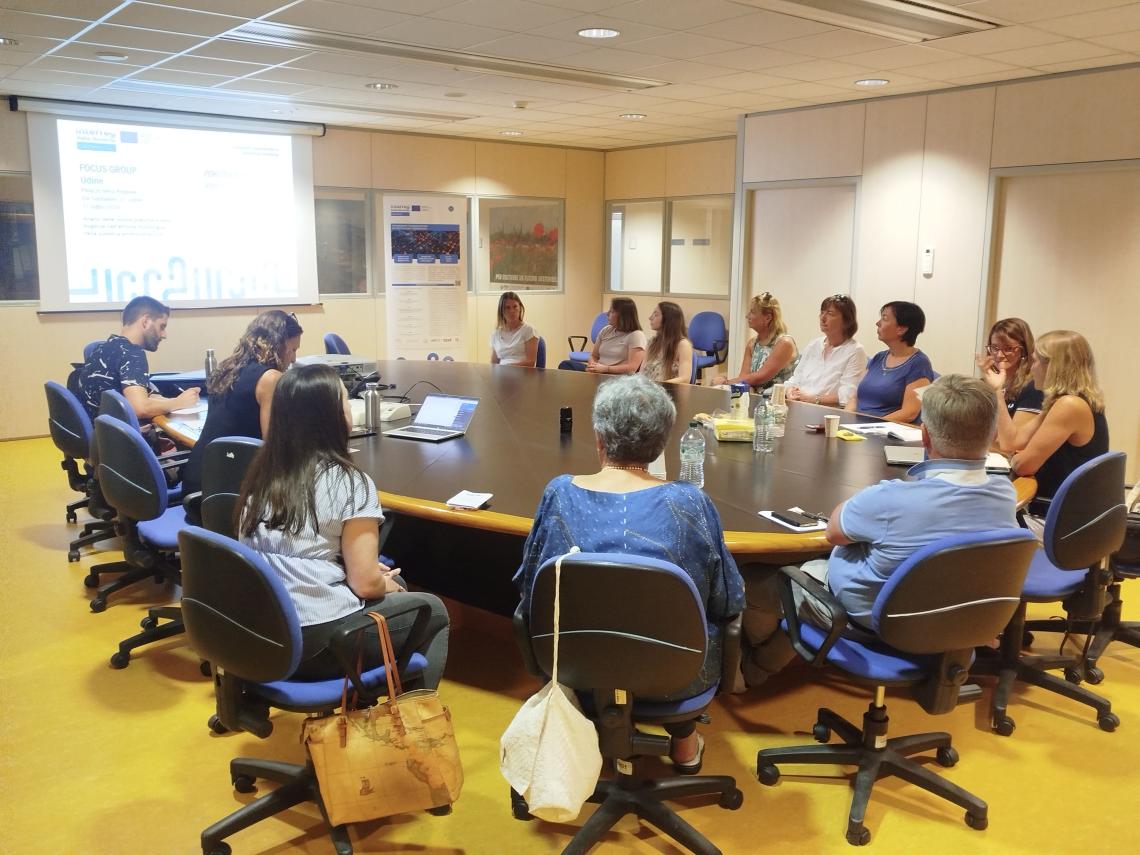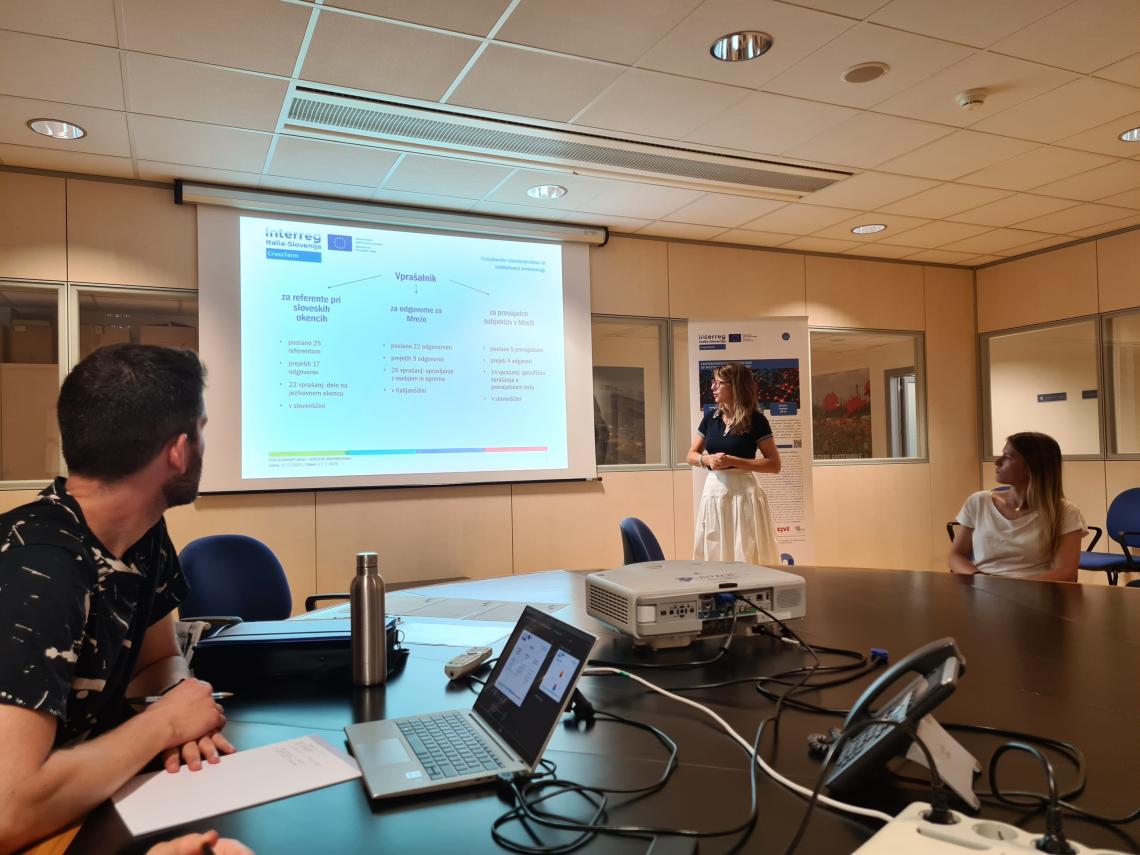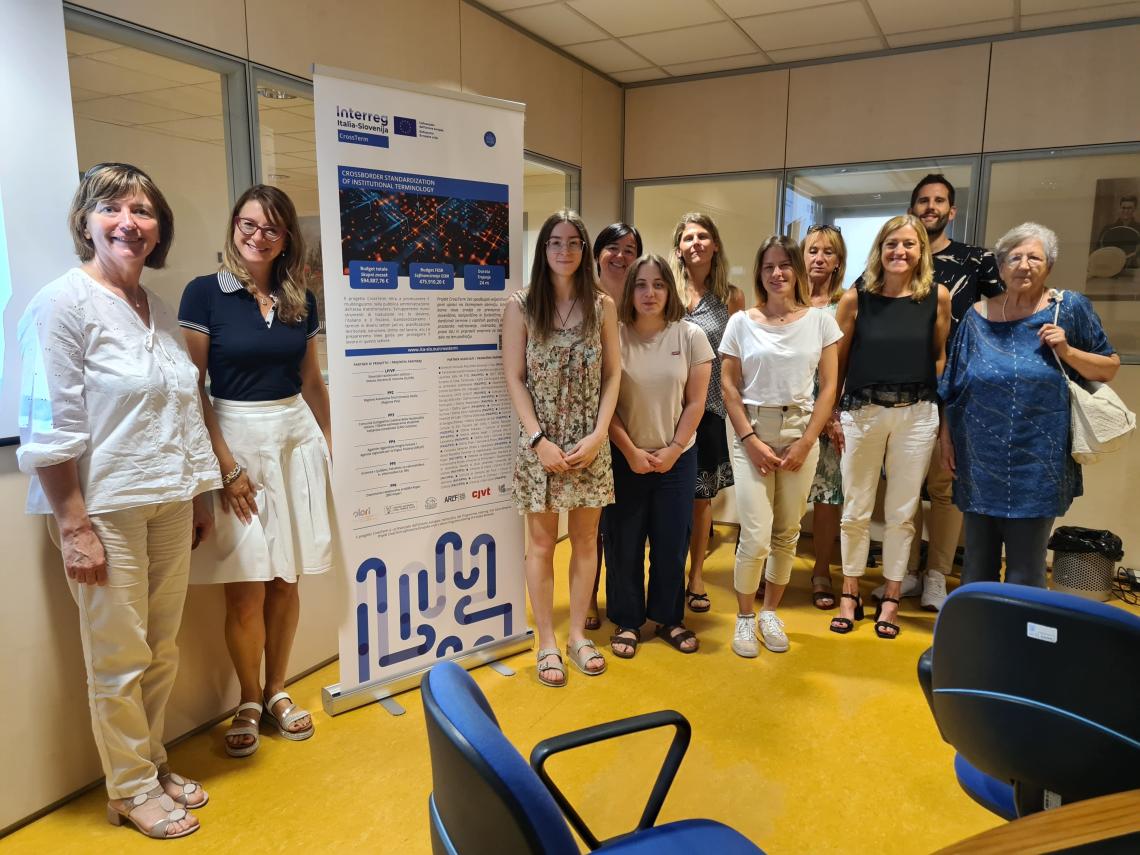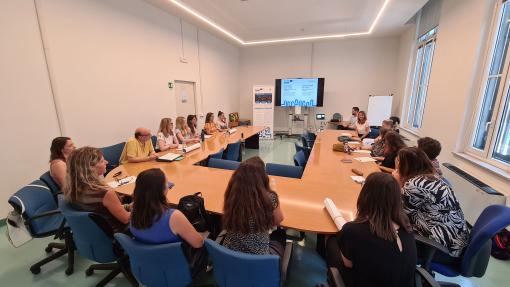On Wednesday 10 July and Wednesday 17 July, focus group meetings were held in Trieste and Udine on the analysis of bilingual operational needs in public administration, promoted in the framework of the CrossTerm project - Cross-border standardisation of institutional terminology, co-financed by the European Union through the Interreg VI-A Italy-Slovenia programme.
The first meeting, held in one of the regional offices in Trieste, was attended by translators and staff of the Slovene language desks in the municipalities and institutions of the provinces of Trieste and Gorizia, while the second meeting, held in the regional administration building in Udine, was attended by the Slovene language desks of the municipalities and institutions of the province of Udine, as well as representatives of Slovene cultural institutions in the area. The aim of the meetings was to deepen the activities of the language desks, to examine the problems and to identify possible solutions in the application of bilingualism in public administration. The two focus group meetings were organised by the Central Office for the Slovene Language of the Friuli Venezia Giulia Region and moderated by Laura Sgubin, translator and interpreter and member of the project's Scientific Committee. The meeting in Trieste was also attended by the scientific coordinator of the CrossTerm project, Matejka Grgič.
The meetings began with the presentation of the results of a questionnaire on the status of the activities of the Slovenian language desks and translation offices in the member organisations of the Network for the Slovenian Language in Public Administration. They discussed how the activities of the language desks are carried out and what could be improved in order to make the work more efficient.
All participants took part in the discussion and expressed their satisfaction with the work of the Central Slovenian Language Office, especially in the field of terminology. Thanks to the use of the Trados Studio computer-assisted translation programme and other IT tools (the Jezik na klik website and the Compendium of Standard Terms), they noted a significant reduction in translation time and a marked improvement in the quality of texts. This is an important step forward for the Slovene language in public administration.
Some critical issues were also highlighted, mainly related to the lack of continuity due to the fixed-term employment contracts of the counters and the need for specific language training. In the valleys of the province of Udine, there is also a lack of staff with sufficient knowledge of Slovene. The focus group participants presented their ideas for improving Slovene language activities and expressed the wish to strengthen the presence of the Slovene language in public life.
